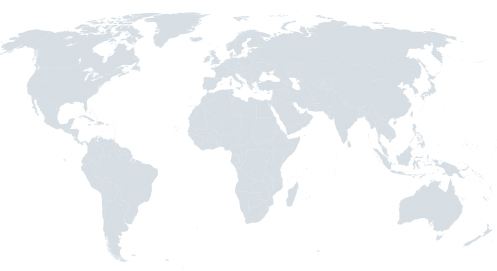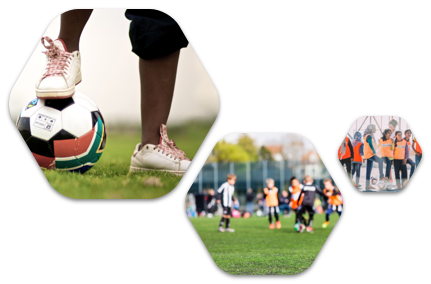Do you need S4D Tools for your own practice?
No matter if you are a new or advanced practitioner - here you will find useful and helpful guidelines, tools and templates to make S4D part of your own work. Through our teaching and learning materials sorted by countries and tools divided in different sections you get insights and inspiration - for example on how to lead your own S4D workshop!
Please keep in mind: All Teaching and Learning Materials, Guidelines, M&E Tools and Templates were developed in programme- and/or country-specific contexts, so please feel free to make selections, changes and modifications to fit your needs.

TOPIC OVERVIEW
-
S4D Teaching and Learning Materials -
Tools for Advising Organizations and Institutions -
Tools for Designing S4D Workshops -
Tools for Implementing S4D Workshops for Instructors -
Tools for Implementing S4D Activities, Training Sessions and Events -
Tools for Using and Maintaining Sports Grounds
The Teaching and Learning Materials are addressed to coaches, teachers and instructors in the areas of formal and informal education. They introduce and cover topics, as well as its core aspects such as the structure, administration and the function of coaches/teachers as role models, creation of concepts and sustainability of activities. Additionally, the manuals outline numerous practical games and drills, and provide helpful recommendations, to promote competences in relation to social inclusion, health education, violence prevention, as well as gender and environmental awareness.
Advising both local and non-local partner organizations is a part of working within the development cooperation context. Consulting means helping people to help themselves, by building their technical and personal competences and by further developing organisational and management structures, procedures and processes. The Guidelines below give insights on how advisory and consulting processes can be designed to ensure a successful outcome in the field of S4D. The questionnaires provided are ideal M&E Tools to track scaling-up processes within a programme.
The sport-pedagogical qualification of coaches and instructors is essential in the field of S4D. Below you will find Guidelines, Templates, and M&E Tools which can support you in planning and implementing a well-executed, qualitative and structured workshop as well as follow-up activities to ensure quality education in S4D.
Welcome to the S4D Workshop for Instructors!
The S4D Workshop for Instructors aims to enable current S4D coaches to become S4D instructors. For coaches to be able to become instructors, they must already possess a certain amount of knowledge and experience in the field of S4D.
In this workshop, current coaches should be taught how to:
- Convey their existing S4D knowledge to other coaches
- Facilitate S4D instructor workshops
- Convey their new knowledge on facilitating an S4D instructor workshop to other coaches
The following Workshop is split into several individual courses. These courses can either be used separately or – preferably – as a whole, as part of an S4D Instructor Workshop.
Be aware that course participants may have differing levels of previous knowledge and that an S4D Onboarding course may be needed before the start of the actual workshop. Such an introductory course can be used to ensure that course participants with less previous experience acquire the needed amount of S4D knowledge to participate in an instructor workshop.
All courses are structured the same way and divided into two distinct sections:
- The first section introduces the topic itself. This is the content part of the course. It can be studied by any person that is interested in finding out more about the respective topic.
- The second section is a facilitation part. This part of the course takes on the perspective of a course facilitator who wishes to teach coaches how to become instructors. It is divided into the three sections:Theory, Practice and Reflection.
For more details about content and structure have a look at the Guideline "General Introduction" below. Furthermore, the Guideline "How to start a Workshop "can help you with the implementation of a workshop.
Please note that all the following Guidelines can be viewed and used individually and in a different order.
Starting a workshop should be carefully planned, as it will be course participants’ first impression of an S4D instructor workshop. The Guideline How to start a Workshop can help you with the implementation of a workshop.
This course outlines what must be considered regarding how to teach that content as an S4D instructor so that course participants will retain as much of the newly gained knowledge as possible.
Adults process, understand and learn knowledge differently than children and young people. For the course facilitator, the biggest difference is that while a coach teaches (children), a course facilitator helps (adults) learn.
The 5 Principles of S4D covers the general framework and the basics of S4D. The focus of the course is on the five main principles of S4D. You will find one course on each of these principles.
The poster "The 5 Principles of S4D" illustrates all the principles at a glance.
The poster "Development of a Player" serves as an overview about different development phases of children and youth, respective teaching goals and methods.
This Part of the course focuses mainly on life skills/competences, the UN Sustainable Development Goals and sport’s contribution to these goals.
Overall, the advanced courses build on the five main principles of S4D and will regularly refer to information from previous courses. It will therefore be assumed that course facilitators and course participants are familiar with the contents of the 5 Principles before continuing with S4D and the SDGs.
Monitoring and evaluation (M&E) is an overarching process, stretching throughout S4D activities where it is implemented at every stage.
An instructor workshop must be understood as an S4D capacity development activity and therefore also needs to be adequately monitored and evaluated. The guideline below applies to both the workshop as well as S4D activities in general.
Closing a workshop should be carefully planned, as it will be the last impression that course participants are left with after an S4D instructor workshop. Therefore the guideline below gives you an idea.
The approach of S4D provides the possibility of covering multiple subjects and allows for greater diversity in creating and managing an event or training activity, e.g. S4D training sessions or S4D tournaments. Below is a list of supplement information and templates associated with planning, monitoring, managing and evaluating activities/events.
To learn and gain knowledge about the construction, use and maintainace of the sports ground and its equipment, manuals and guidelines including descriptions and tools have been created by the GIZ "Sport for Development in Africa" regional project and its partners to assess these matters.
